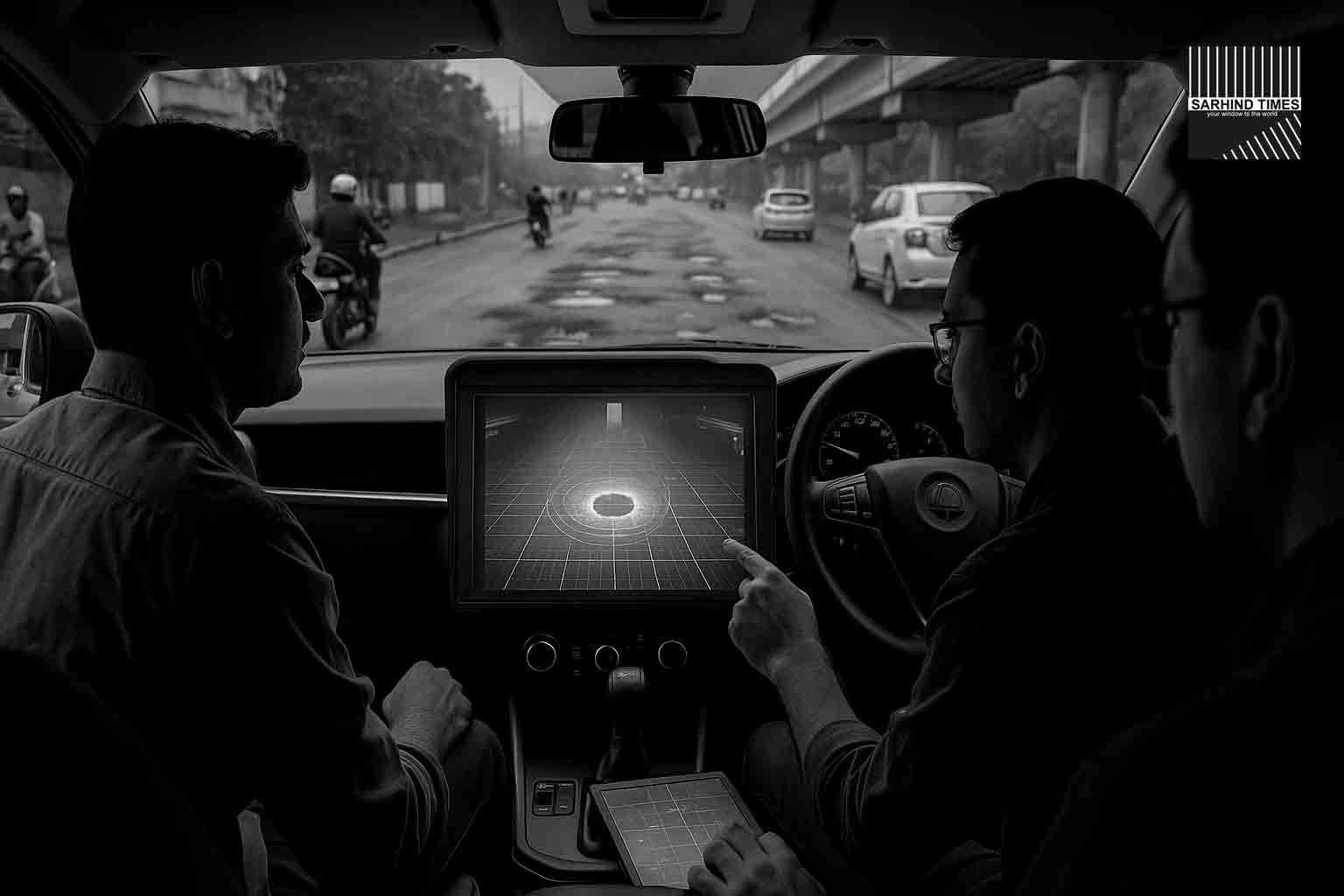Gurgaon, often hailed as the “Millennium City,” has long struggled with a paradox: futuristic high-rises and corporate hubs on one side, and accident-prone roads with potholes and poor signage on the other. Now, the city is betting on artificial intelligence to close that gap.
The Municipal Corporation of Gurugram (MCG) and the Municipal Corporation of Manesar (MCM) have launched a pilot AI-based road audit system that promises to make the city’s roads safer, smarter, and easier to maintain. The system uses computer vision and data analytics to automatically flag potholes, cracks, missing signboards, and other hazards in real time, feeding into a centralized dashboard for engineers and contractors.
How the AI Road Audit Works
The AI-enabled system relies on:
- Cameras mounted on vehicles scanning road surfaces daily.
- Machine learning algorithms detecting defects like potholes, cracks, or faded markings.
- A live dashboard that alerts engineers to problem areas, prioritizing fixes based on severity and traffic volume.
- Photographic proof linked to each defect, ensuring accountability for contractors tasked with repairs.
This automation reduces human subjectivity and ensures consistent monitoring across thousands of kilometers of road networks.
Why Gurgaon Needs It
Gurgaon’s road safety record has been under scrutiny:
- High commuter volumes from Delhi, Manesar, and beyond.
- Expanding arterial highways with frequent construction diversions.
- Crash-prone “black spots” identified repeatedly by traffic police.
- Residents reporting poor upkeep despite large contractor budgets.
The AI-based audit aims to proactively identify risks before they become accidents, replacing the current complaint-driven model with continuous surveillance.
Benefits for Residents
- Safer commuting: Faster pothole detection means fewer two-wheeler skids and car accidents.
- Transparency: Each defect tagged with GPS + image data, making it harder for contractors to cut corners.
- Faster repairs: SLAs (Service Level Agreements) tied to AI alerts, reducing bureaucratic delays.
- Open data demand: Residents’ groups want this dashboard made partially public so they can track progress themselves.
Voices from the Ground
- Resident of Sector 56: “We’ve been raising the same pothole complaints for months. If AI can force action within days, it’s a real change.”
- Urban planner: “This is not just tech—it’s governance reform. The question is whether transparency is institutionalized.”
- MCG official: “The AI system brings discipline into maintenance contracts. Every rupee spent will be backed by proof.”
Technology in Indian Urban Governance
AI in civic management is gaining traction across India:
- Bengaluru has tested AI traffic cameras.
- Delhi uses AI to monitor air quality hotspots.
- Pune is experimenting with smart waste tracking.
Gurgaon’s road audit is part of this wave, but it is unique in tying AI directly to contractor accountability—a pain point in most Indian cities.
Challenges Ahead
- Implementation costs: Scaling the system across Gurgaon’s full network will require significant funding.
- Integration with legacy systems: Current complaint apps and engineering logs must sync with AI outputs.
- Data transparency: Unless at least partial public access is granted, trust deficits may persist.
- Contractor resistance: Some vendors may push back against the strict photographic proof system.
Festive Season & Expansion Plans
Officials want the system expanded citywide before the festive rush, when traffic volumes spike and road accidents historically rise. The pilot will cover high-density corridors first (MG Road, Sohna Road, NH-48 connectors) before scaling to residential zones.
Longer-term, the system could tie into black-spot remediation projects, allowing the city to shift from reactive repairs to predictive maintenance.
Strategic Importance
For Gurgaon, positioning itself as a smart city and global investment hub, road safety is not just about saving lives—it’s about reputation. Multinationals and investors expect modern infrastructure; AI-enabled audits help the city signal modernity and accountability.
Conclusion
The AI road audit is both a technological leap and a governance experiment. If implemented with transparency and speed, it could make Gurgaon’s roads safer and its civic systems more accountable. If it falters under contractor resistance or bureaucratic delays, it risks becoming another flashy pilot.
For now, optimism prevails—residents, officials, and experts agree that AI-driven maintenance could be the missing link between Gurgaon’s aspirations and its realities.
#Gurgaon #RoadSafety #AI #SmartCity #MCG #MCM #Infrastructure #UrbanInnovation







+ There are no comments
Add yours